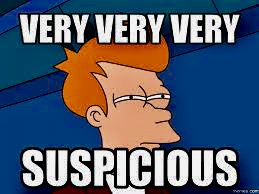
The duty of a lawyer/solicitor in taking will instructions when suspicious circumstances are present was discussed in Shroff v Schroff 2017 MBQB 51.
Suspicious Circumstances
Suspicious circumstances have been found to exist in a wide array of situations and are not necessarily sinister in nature. There is no checklist of circumstantial factors that will invariably fit the classification.
Commonly occurring themes include where a beneficiary is instrumental in the preparation of the will (especially where the beneficiary stands in a fiduciary position to the testator), or where the will favours “someone who has not previously been the object of [the testator’s] bounty and does not fall within the class of persons testators usually remember in their wills, that is to say their next of kin”: Longmuir v. Holland, 2000 BCCA 53, at para. 69 [Longmuir]; Heron Estate v. Lennox, 2000 BCSC 1553 at para. 67 [Heron Estate]. In Moore, N. Smith J. found the fact that the testatrix’s doctor had described her as no longer capable of managing her affairs and as suffering dementia around the time she made her will constituted a suspicious circumstance.
The suspicious circumstances may be raised by
(1) circumstances surrounding the preparation of the will,
(2) circumstances tending to call into question the capacity of the testator, or
(3) circumstances tending to show that the free will of the testator was overborne by acts of coercion or fraud.
Duty of the Solicitor When taking Will Instructions When Suspicious Circumstances Present:
[28] As to the role of a solicitor taking instructions from an elderly testator, he quoted with approval the following passage from Murphy v. Lamphier (1914), 31 O.L.R. 287 (H.C.) at 318 (at para. 81):
A solicitor is usually called in to prepare a will because he is a skilled professional man. He has duties to perform which vary with the situation and condition of the testator. In the case of a person greatly enfeebled by old age or with faculties impaired by disease, and particularly in the case of one labouring under both disabilities, the solicitor does not discharge his duty by simply taking down and giving legal expression to the words of the client, without being satisfied by all available means that testable capacity exists and is being freely and intelligently exercised in the disposition of the property. The solicitor is brought in for the very purpose of ascertaining the mind and will of the testator touching his worldly substance and his comprehension of its extent and character and of those who may be considered proper and natural objects of his bounty. The Court reprobates the conduct of a solicitor who needlessly draws a will without getting personal instructions from the testator, and, for one reason, that the business of the solicitor is to see that the will represents the intelligent act of a free and competent person.
[29] Guided by these principles, Hunter, J., concluded that the solicitor (at para. 93):
… did not go far enough, given the suspicious circumstances … to substantiate testamentary capacity. Further inquiries needed to be made to ascertain Ms. Peter’s capacity. Perhaps those inquiries were made, but if so, they were not documented and [the solicitor] has a very limited recollection of their conversations. If a solicitor has good reason to be concerned about testamentary capacity – and such seemed clearly to be the case here – then a systematic assessment of the testator’s capacity should take place, and if doubts remain then there should be an assessment by a physician or a psychologist.
[30] In Cousins Estate, Re, another will case where suspicious circumstances existed, Cullity, J., observed (at para. 70):
The obligations of solicitors when taking instructions for wills have been repeatedly emphasised in cases of this nature. At the very least, the solicitor must make a serious attempt to determine whether the testator or testatrix has capacity and, if there is any possible doubt – or other reason to suspect that the will may be challenged – a memorandum, or note, of the solicitor’s observations and conclusions should be retained in the file: see, for example, Maw v. Dickey (1974), 6 O.R.(2d) 146 (Ont. Surr. Ct.), at pages 158-59; Eady v. Waring [(1974), 2 O.R.(2d) 627 (Ont. C.A.)] …, at page 635; Murphy v. Lamphier … at pages 318-21. Some of the authorities go further and state that the solicitor should not allow a will to be executed unless, after diligent questioning, testing or probing he or she is satisfied that the testator has testamentary capacity. This, I think, may be a counsel of perfection and impose too heavy a responsibility. In my experience, careful solicitors who are in doubt on the question of capacity, will not play God – or even judge – and will supervise the execution of the will while taking, and retaining, comprehensive notes of their observations on the question.




